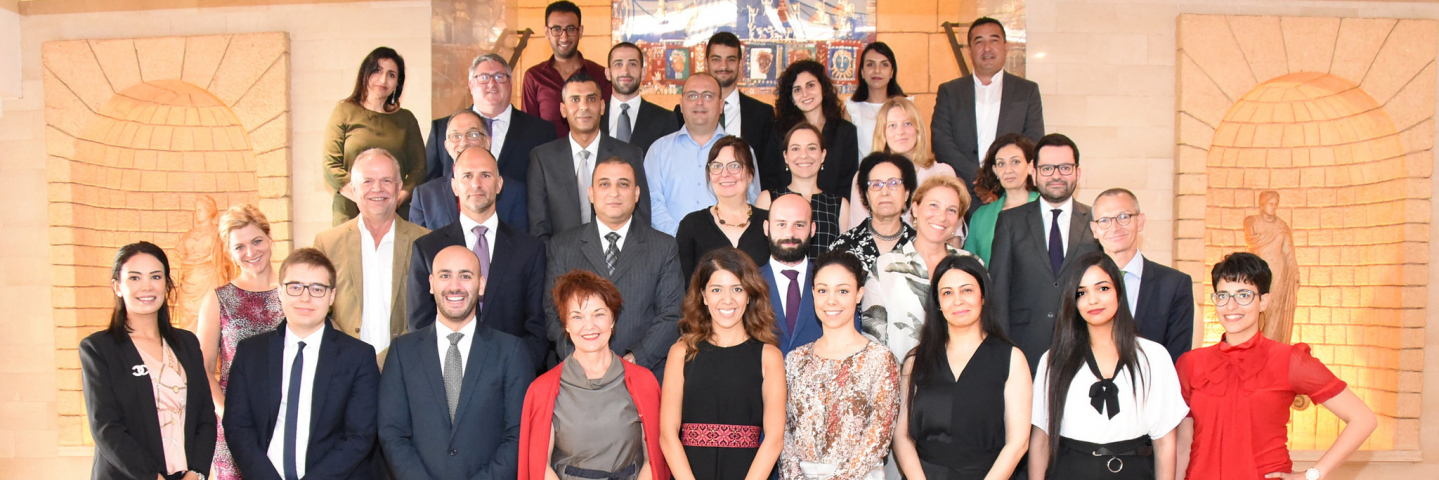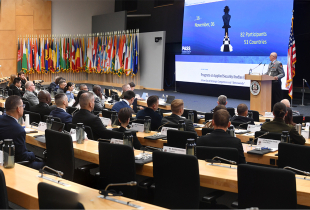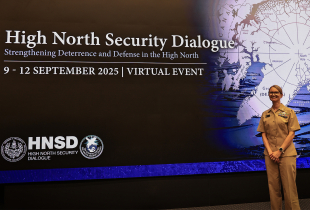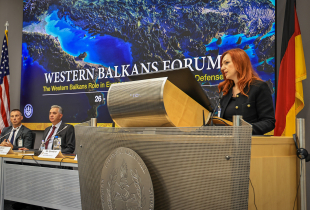
Marshall Center Event Explores Common Vision of Shared Responsibility for Security
By Christine June
Public Affairs Office
George C. Marshall European Center for Security Studies
TUNIS, Tunisia (July 2, 2019) – An outreach team from the George C. Marshall European Center for Security Studies organized an event to enhance a common understanding of shared responsibility for comprehensive security in the Mediterranean region here from June 23 to 26.
This event was requested by the German Federal Ministry of Defense and brought together 39 subject matter experts from 11 countries around the Mediterranean Sea and United States, said Dr. Petra Weyland, Marshall Center’s professor on Middle East and North Africa regional security studies.
For this event, Marshall Center partnered with the University of Sfax in Tunisia.
Subject matter experts included a variety of professionals with diplomatic, political, academic and practical expertise to include mayors from Libya, Italy, France and Greece.
“The mayors who attended are extremely active on migration issues and are very well known and prominent when it comes to the joined topics of migration and security,” Weyland said. “These experts explored a wide variety of issues related to the topics of greater migration and mobility, and youth and local government as partners in security around the Mediterranean.”
The event in Tunisia was the third annual meeting of the Mediterranean Discourse on Regional Security.
“This is a group of experts from around the Mediterranean who are convinced that the deteriorating security situation in the region needs new and ‘out-of-the-box’ solutions,” said Weyland. “The group plans to work together for the next several years.
“Bringing together these experts with officials working in the security sector of their countries is a highly valuable approach for both sides,” she added.
She said that this meeting was a follow-up to the workshops held in Rome in 2017 and Cyprus in 2018, as well as the Marshall Center’s resident programs, European Security Seminar-South and Seminar on Regional Security, held in 2018.
“Inviting members of MDRS to serve as adjuncts in Marshall Center resident courses has proven an excellent approach,” Weyland said.
The group, Weyland said, wants to put even more efforts into discussing its ideas with stakeholders and policymakers, and including them in generating fresh approaches.
“They are convinced that in today’s globalized world, security challenges are shared,” Weyland said. “Therefore, the efforts towards increasing security also needs to be shared. New approaches must be based on a common vision, and MDRS proposes shared responsibility for security as this vision. All of this is of high importance, especially when it comes to the Mediterranean region.”
She added that migration and mobility will continue to be a multi-faceted security challenge.
“Courageous, dedicated, comprehensive solutions, inspired by shared values and the notion of shared responsibility, are needed to face this challenge,” Weyland said.
At this meeting, experts explored what the common vision of shared responsibility for security means with regard to migration and discussed how this vision can be translated into practice.
“The notion of sharing, as MDRS understands it, means that responsibility for security is not only the business of the national government and its security professionals, but also a task for local governments, civil society and multinational organizations,” she explained.
Weyland said that separate meetings of the MDRS core group were held in the days before and after the two-day workshop. They organized the working groups to include additional group of attendees, plenary sessions, lectures, a mayoral panel discussion, and planning future work.
Experts came from France, Germany, Italy, Spain, Greece, Jordan, Lebanon, Morocco, Tunisia, United States and South Africa.
They represented organizations such as: the Konrad-Adenaeur Stiftung; German Ministry of Defense; Lebanon Crisis Response; Tunisian National Coast Guard; Tunisian Navy; European Institute of the Mediterranean; European Committee of the Regions; HUMBOLDT-VIADRINA Governance Platform; Refugees, Youth and Community Resilience; Nicosia Initiative, municipalities of Tripoli and Zintan (Libya), U.S. Embassy Tunis; German Embassy Tunis; and, the University of Sfax.


